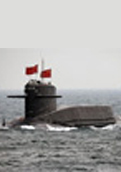The Importance of Passive and Active CBRN Defensive Measures
The key to calling Pakistan’s nuclear bluff lies in ensuring that the Indian armed forces are prepared to meet the threat of use of tactical nuclear weapons.
- Sanjay Badri-Maharaj
- October 17, 2016














